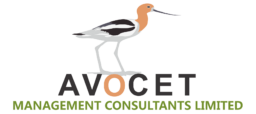a) HACCP
HACCP is the most important food safety tool employed across the global food industry. The Codex HACCP principles form the basis of many globally recognized food safety systems.
Building on the competence and long experience of our experts, we offer HACCP training at different levels depending on your specific need – Basic, Intermediate and Advanced levels.
HACCP is the most important food safety tool employed across the global food industry. The Codex HACCP principles form the basis of many globally recognized food safety systems.
The following topics are covered in this training module:
- Introduction to food safety
- History of HACCP
- Hazards associated with food
- HACCP Application steps
- Hazard analysis
- The HACCP Plan
- Monitoring, verification and validation
Target Audience
This training module is designed to enable the Food Safety Team and those responsible for food safety.
Course Objectives
Upon completion of this course, delegates will be able to:
- Define the concepts related to food safety
- Appreciate the history of HACCP and its limitations
- Explain the HACCP application steps
- Apply the Seven Codex Principles and conduct a risk assessment
- Prepare a HACCP Plan/Hazard Control Plan
Course Duration
1.5 days
Prerequisites
None


b) Global G.A.P.
Global G.A.P. is an internationally accepted farm assurance program that focuses on implementing good agricultural practices at the farm level.
Effective implementation of Global GAP will enhance access to the international or local market for fresh farm produce.
Using our proven expertise, we will help you implement a robust system leading to certification.
GLOBAL G.A.P. is a farm assurance program that applies to agro commodities like fruits and vegetables.
The benefits of Global GAP include:
- Sustainability
- Market access both local and international
- Builds customer confidence and trust
Our experts will provide you with an in-depth technical assessment and advisory services as well awareness training on the scheme requirements.
Target Audience
Farmers or farmer groups and other organization dealing with agricultural /horticultural products.
Course Objectives
By the end of this course, delegates will be able to:
- Understand the scheme requirements
- Develop the necessary documentation to support the implementation of the systems
- Design and implement a traceability system
Course Duration
1 day
Prerequisites
None
c) Food safety and Hygiene Training
Good hygiene practices (GHPs) are the foundation of any effective control of hazards associated with any Food Businesses Organization.
Food business operators (FBOs) should be aware of and understand the hazards associated with the food they produce, transport, store and sell, and the measures required to control those hazards relevant to their business, so that food reaching consumers is safe and suitable for use.
We offer a one-day training program targeting food handlers to enable then understand the basics of food safety and the principles of food hygiene.
All over the world people are seriously affected every day by diseases that are caused by consuming unhygienic and unsafe food. Observing good hygienic practices when preparing/handling food will help prevent and control foodborne diseases.
This course will introduce you to the principles of food hygiene and safety. You will also learn about food control, food inspection and supportive enforcement measures that can contribute to food hygiene and safety.
Target Audience
This training module is designed for food handlers and those responsible for overseeing food safety.
Course Objectives
Upon completion of this Course, delegates will be able to:
- Understand the concepts of Food Safety
- Understand the importance of food safety to business
- Understand their individual contribution to food safety
- Implement the prerequisite programmes.
Course Duration
This module runs for one day.
Prerequisites
None


d) Allergen Management
We offer training to food handlers on allergen awareness, and training on specific allergen control measures associated with their areas of work.
Food allergy has emerged as a major concern for consumers worldwide.
Food allergy is an immune system reaction that happens soon after eating a certain food. Even a tiny amount of the allergy-causing food can trigger allergic reactions. In some people, a food allergy can cause severe symptoms or even be life-threatening.
There is therefore need for all players along the food chain to put in place measures to prevent allergen cross-contamination.
This training module is designed to enable members of the food safety team and other persons holding key position in an organization acquire knowledge and skills needed to enable them identify and assess risks associated with food allergy and establish control measures.
Target Audience
Members of the food safety team, supervisory and managerial staff.
Course Objectives
By the end of this course, delegates will be able to:
- Identify all allergens of concern including those handled on site,
- carry out risk assessment covering all potential sources of allergen cross contamination
- identify and implement control measures to reduce or eliminate the risk of cross-contamination
- validate and verify control measures
Course Duration
1 day
Prerequisites
None
e) Food Defence and Food Fraud Prevention
It is your moral obligation to protect food from intentional adulteration.
Our training programs on food defence and food fraud prevention are designed to transfer knowledge and skills on how to carry out an effective threat and vulnerability assessment.
Changes in legislation has seen the emergency of new concerns in food safety, namely; Food Defence & Food Fraud prevention.
This training module is designed to enable members of the food safety team and other persons holding key position in an organization acquire knowledge and skills needed to enable them identify, assess and prevent/control or mitigate potential threats to food safety – for example intentional contamination of food, sabotage, vandalism, mislabelling, substitution, counterfeiting etc.
Target Audience
The food safety team, supervisory and managerial staff.
Course Objectives
By the end of this course, delegates will be able to:
- carry out threat assessment and come up with a food defence plan
- carry out a vulnerability assessment and develop a food fraud prevention plan.
Course Duration
1 day
Prerequisites
None

